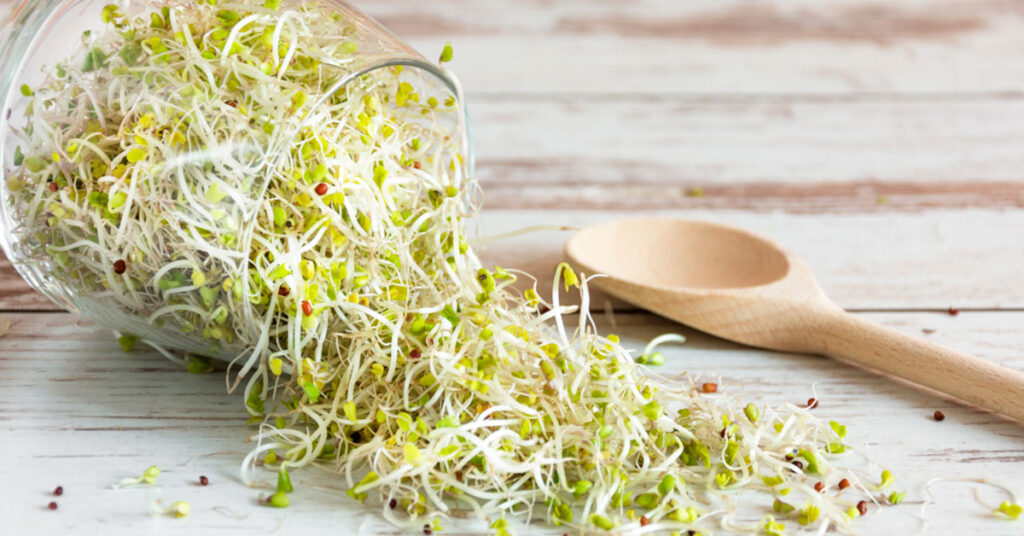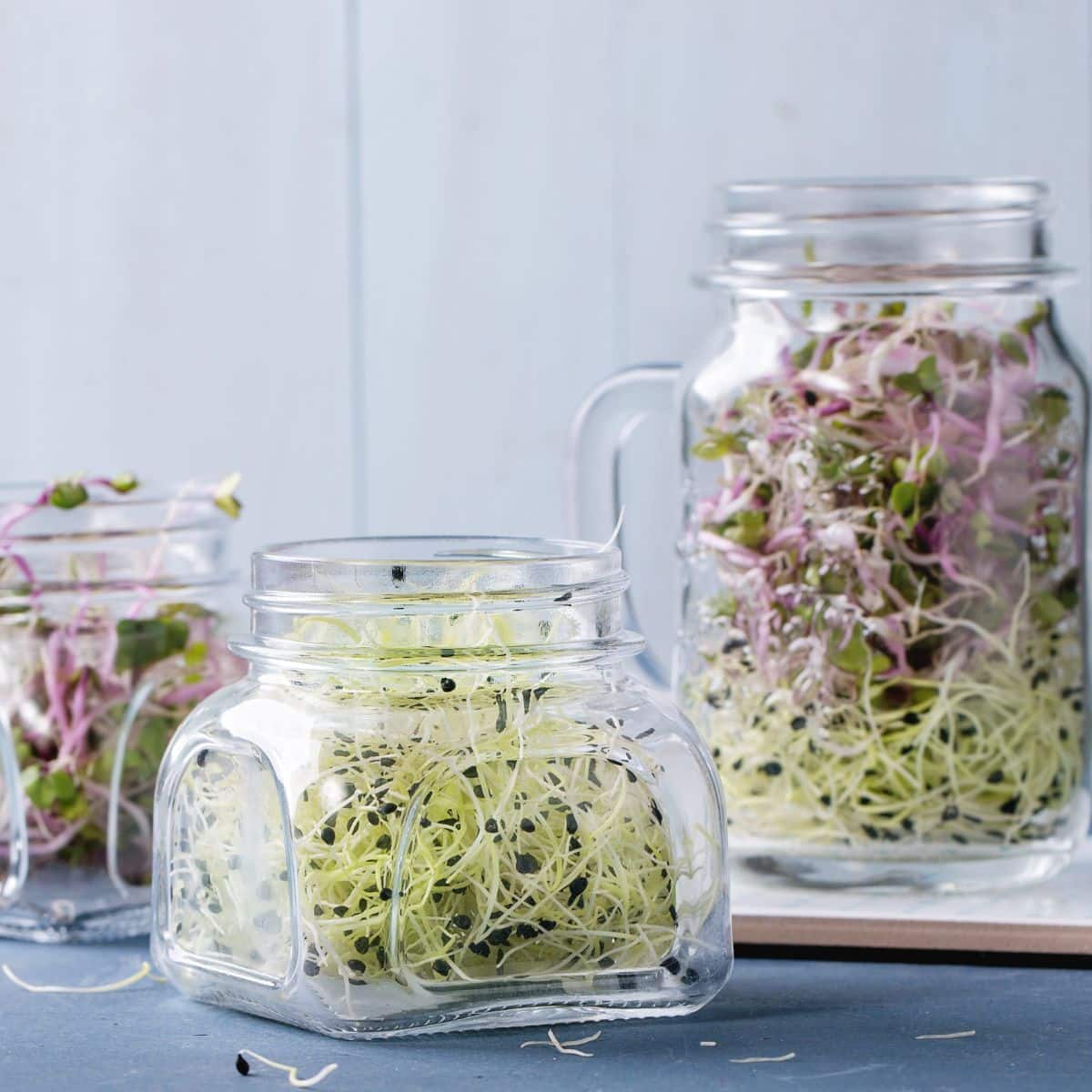

In the nutrition and culinary world, sprouting is the practice of germinating seeds to be eaten, often raw but also cooked. Sprouts are low in calories and rich in fiber and essential nutrients. While you can purchase them in many grocery stores nowadays, you can also easily cultivate them in your home without any gardening skills.
There are numerous health benefits of consuming sprouts:[1][2][3]
- Sprouts are a powerful source of numerous nutrients, and sprouting can increase the potency of those nutrients.
- Because sprouts are oxygen dense, they protect the body against bacteria, viruses, and abnormal cell growth.
- Vitamins A, B, C, and E, plus essential fatty acids, are all more concentrated in sprouts.
- In sprouts, minerals bind to protein, making them more easily absorbed in the body.
- Sprouted seeds, grains, and legumes help support cell regeneration.
- Due to their richness in dietary fiber and low calorie content, sprouts can help with your weight loss goals.
- When you grow them yourself, you contribute to a healthier food system by avoiding pesticides, food additives, and pollution from transportation.
How to Sprout Grains and Legumes
Sprouting grains and legumes is easy:
- Wash the whole grains or legumes using drinking water, then soak them in water for at least 6–8 hours (larger beans might require longer).
- Drain the water. Wash the beans again with fresh water before placing them in a sprout maker or a covered sieve and transferring them to a dark place.
- It takes 8–16 hours, depending on the weather, for sprouts to start emerging. Any beans that have not sprouted after that time are spoiled, and you should separate them from the sprouted beans and either trash or compost them.
- Continue rinsing and draining the sprouts 2–3 times daily for 2 days or until they reach your desired length.
- Give your sprouts one final rinse and drain, then wrap the sprouts up with a paper towel and store them in a container in the fridge for up to a week.

How to Sprout Seeds (Mustard, Clover, Radish, Alfalfa, Broccoli, etc.)
- Soak your seeds. A good rule of thumb is to use a 3:1 water-to-seed ratio. Start with one tablespoon of seeds: place them in a clean wide-mouthed glass jar, cover them with three tablespoons of water, and stir to ensure all the seeds are wet. Cover the jar with a mesh lid or a muslin cloth secured by a rubber band.
- Set the jar aside and allow the seeds to soak for 6–8 hours.
- Drain the soaking liquid from the jar, then rinse the seeds by adding fresh water to the jar, swirling it around, and draining once more. Make sure to really shake out as much water as you can. Setting the jar at a downward angle inside a bowl can help with aeration and drainage.
- Set the bowl with the jar in an out-of-the-way spot. It does not need sunshine, but it does need to be able to breathe.
- Continue rinsing your sprouts twice daily with fresh, cool water, draining them, and propping them back in the bowl. You will usually start seeing little spouts within a day or so. Repeat this cycle of rinsing and draining until the sprouts are your desired length. Usually, this takes 4–5 days.
- After giving your sprouts one final rinse and drain, remove the lid or cloth from the jar and place the sprouts on a clean, absorbent kitchen towel. Wrap the sprouts up (extra moisture is the enemy of sprouts) and close them in a container to refrigerate. Refrigerated sprouts last for up to a week.
Happy sprouting!
*This article is reprinted with permission from www.vinitacontractor.com.
References
- Aloo SO, Ofosu FK, Kilonzi SM, Shabbir U, Oh DH. Edible Plant Sprouts: Health Benefits, Trends, and Opportunities for Novel Exploration. Nutrients. 2021;13(8):2882. Published 2021 Aug 21. doi:10.3390/nu13082882
- Vidal JD, Beres C, Brito FO, Zago L, Miyahira RF. Unlocking the functional potential of sprouts: a scientific exploration on simulated gastrointestinal digestion and colonic fermentation. Journ. of Func. Foods. 2024;117. doi:10.1016/j.jff.2024.106235
- Wright KC. Tiny sprouts provide big nutrition. American Heart Association News. June 7, 2022. https://www.heart.org/en/news/2022/06/07/tiny-sprouts-provide-big-nutrition
Copyright 2026 Center for Nutrition Studies. All rights reserved.
Deepen Your Knowledge With Our
Plant-Based Nutrition
Certificate
Plant-Based Nutrition Certificate
- 23,000+ students
- 100% online, learn at your own pace
- No prerequisites
- Continuing education credits











